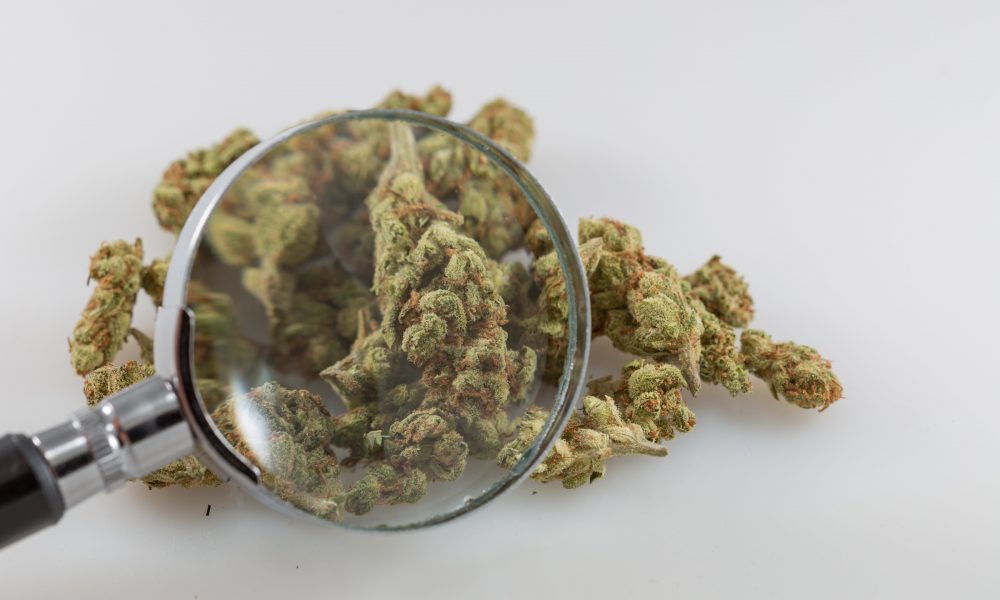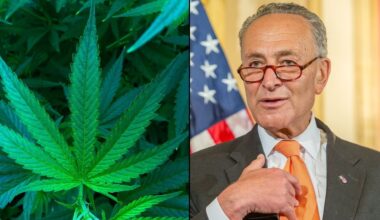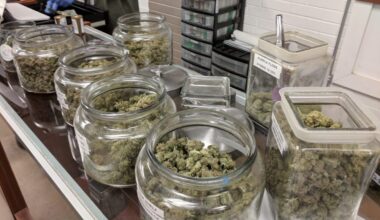A Pennsylvania lawmaker on Friday introduced a bill to expand the number of medical marijuana cultivators in the state, prioritizing small farms to break up what she characterized as a monopoly or large corporations that’s created supply problems.
Rep. Melissa Shusterman (D) filed the bill, which she said would help to resolve supply chain issues resulting from limits on how many cultivators can operate in a given geographic zone.
“Pennsylvanians shouldn’t have trouble accessing medication prescribed by a doctor for relief from pain and sickness,” Shusterman said in a press release. “The restrictions placed on growers and processors hurts small businesses, farmers and patients alike.”
I officially introduced my bill to allow PA small farmers to grow medical marijuana, because I believe current restrictions hurt both PA farmers and medical marijuana patients. https://t.co/TQORhySPEv
— Rep. Melissa Shusterman (@RepShusterman) October 29, 2021
Shusterman first raised the issue in a co-sponsorship memo to colleagues in March. The lawmaker said at the time that it’s “crucial that Pennsylvanians have accessible and equitable entry into the burgeoning medical cannabis industry.”
Under her proposal, which was filed with 14 initial cosponsors and has been referred to the House Health Committee, there would be a new definition added to the state’s medical cannabis law for “farmer-growers” who could obtain a marijuana business licenses.
A farmer-grower would be limited to cultivating cannabis on a single site that does not exceed two acres of land, but its products would be taxed less than other growers. Under the current system, producers face a gross receipts tax of 5 percent on sales to dispensaries. That would be set at just 1 percent for farmer-growers.
And whereas current cultivators need to meet municipal zoning and land use requirements for manufacturing, processing and production facilities, farmer-growers would have to meet the requirements for agricultural operations.
The hope is that creating this new permit category and empowering small farmers to grow cannabis will drive down prices for consumers, as well as unlocking opportunities for more businesses.
—
Marijuana Moment is already tracking more than 1,200 cannabis, psychedelics and drug policy bills in state legislatures and Congress this year. Patreon supporters pledging at least $25/month get access to our interactive maps, charts and hearing calendar so they don’t miss any developments.![]()
Learn more about our marijuana bill tracker and become a supporter on Patreon to get access.
—
“The studies have shown again and again the benefits of medical marijuana for certain medical conditions,” Shusterman said. “It’s not fair that only big corporations control the market, hurting consumers and small businesses.”
The legislation would still not allow medical cannabis patients to grow their own medicine, however. Efforts to add that right have been defeated in the legislature.
The new bill’s introduction comes as Pennsylvania lawmakers work to advance adult-use legalization and other drug policy reforms.
A much-anticipated bipartisan Senate bill to legalize marijuana in Pennsylvania that has been months in the making was formally introduced earlier this month.
Sens. Dan Laughlin (R) and Sharif Street (D) unveiled the nearly 240-page legislation months after first outlining some key details back in February. It would allow adults 21 and older to purchase and possess up to 30 grams of cannabis, five grams of marijuana concentrate products and 500 milligrams of THC contained in cannabis-infused products.
Meanwhile, Rep. Amen Brown (D) recently announced his intent to file a reform bill that he’ll be working on with Sen. Mike Regan (R), who expressed his support for the policy change a day earlier.
Additionally, a separate pair of state lawmakers—Reps. Jake Wheatley (D) and Dan Frankel (D)—formally unveiled a legalization bill they’re proposing.
While each measure generally seeks and end to marijuana criminalization by creating a regulated, commercial model for cannabis, there are some provisions that make each piece of legislation unique. For example, the proposals vary in how they would approach taxes, revenue and social equity.
While these recent moves to enact reform in the GOP-controlled legislature are encouraging to advocates, a spokesperson for House Majority Leader Kerry Benninghoff (R) recently tempered expectations, saying that there’s “no significant support for the legalization of recreational marijuana in the House Republican caucus.”
Lt. Gov. John Fetterman (D), who is running for U.S. Senate, told Marijuana Moment in a recent phone interview that he’s optimistic about the prospects of reform with these latest proposals, though he acknowledged that there may be disputes between legislators over how tax revenue should be distributed.
Gov. Tom Wolf (D), for his part, has said that a bipartisan approach to legalization “would be a great thing. I think the time is right.”
Meanwhile, the Philadelphia City Council has placed a referendum on the local November ballot urging the state to enact legalization. The hope is that the local vote could further motivate the legislature to move ahead with legalization.
While broad cannabis legalization proposals have not moved forward in the Republican-led legislature, Pennsylvania senators heard testimony last month on a bill to protect medical marijuana patients from being prosecuted under the state’s “zero tolerance” DUI laws.
Sen. Camera Bartolotta (R) first introduced an earlier version of the bill in June 2020. She said at the time that the state needs to “ensure that the legal use of this medicine does not give rise to a criminal conviction.”
Months after the standalone reform legislation was introduced, the Pennsylvania House approved a separate amendment that would enact the policy change.
Separately this month, a bipartisan coalition of Pennsylvania lawmakers introduced a bill that’s meant to promote research into the therapeutic potential of psilocybin mushrooms for mental health conditions such as post-traumatic stress disorder.
Outside the legislature, Wolf said earlier this year that marijuana legalization was a priority as he negotiated the annual budget with lawmakers. However, his formal spending request didn’t contain legislative language to actually accomplish the cannabis policy change.
Wolf, who signed a medical cannabis expansion bill in June, has repeatedly called for legalization and pressured the Republican-controlled legislature to pursue the reform since coming out in favor of the policy in 2019. Shortly after he did that, a lawmaker filed a separate bill to legalize marijuana through a state-run model.
In May, Wolf pardoned a doctor who was arrested, prosecuted and jailed for growing marijuana that he used to provide relief for his dying wife. That marked his 96th pardon for people with cannabis convictions through the Expedited Review Program for Non-Violent Marijuana-Related Offenses that’s being run by the Board of Pardons.
A survey from Franklin & Marshall College released this week found that 60 percent of Pennsylvania voters back adult-use legalization. That’s the highest level of support for the issue since the firm started polling people about it in 2006.
Photo courtesy of Chris Wallis // Side Pocket Images.
Medical Disclaimer:
The information provided in these blog posts is intended for general informational and educational purposes only. It is not a substitute for professional medical advice, diagnosis, or treatment. Always seek the advice of your physician or other qualified healthcare provider with any questions you may have regarding a medical condition. The use of any information provided in these blog posts is solely at your own risk. The authors and the website do not recommend or endorse any specific products, treatments, or procedures mentioned. Reliance on any information in these blog posts is solely at your own discretion.






